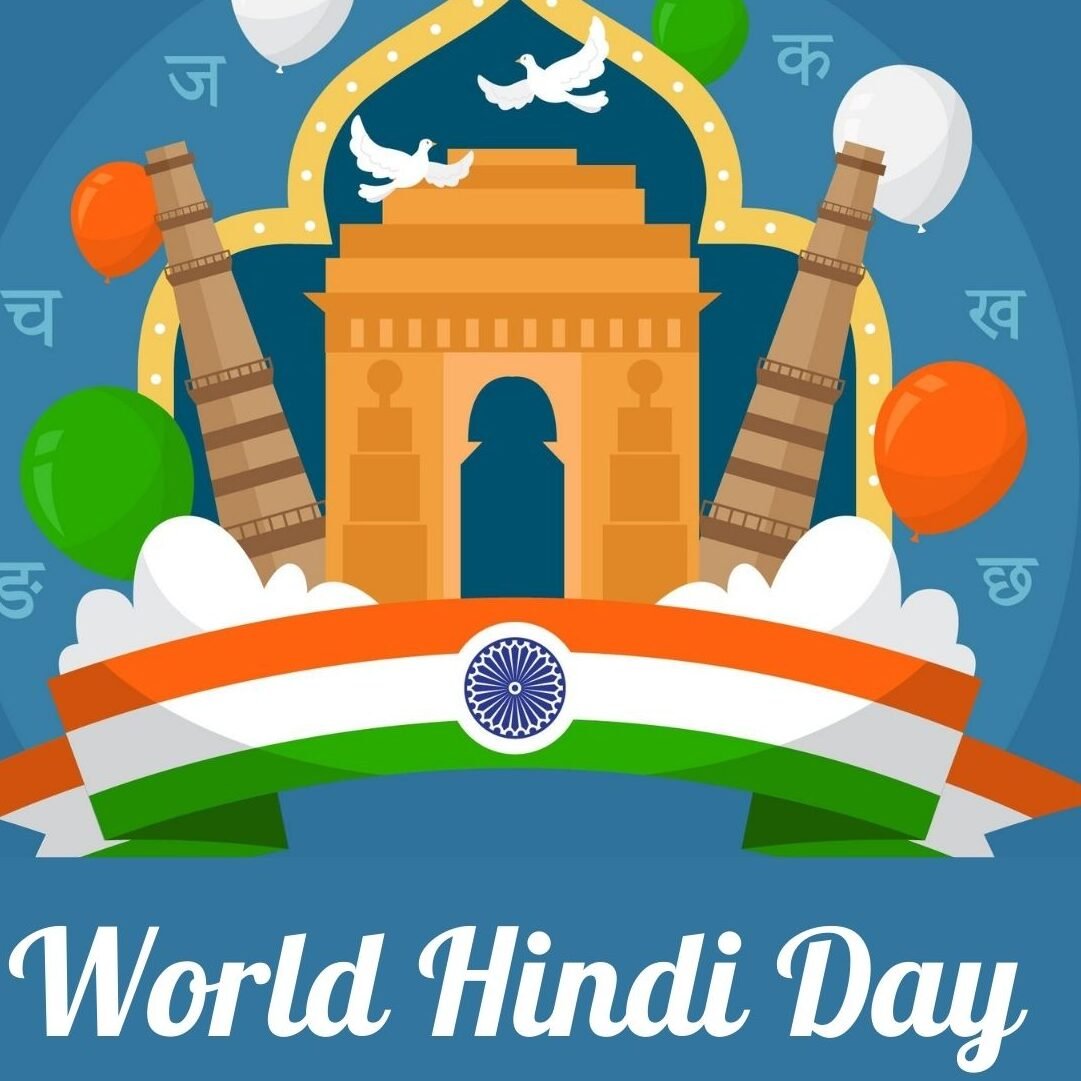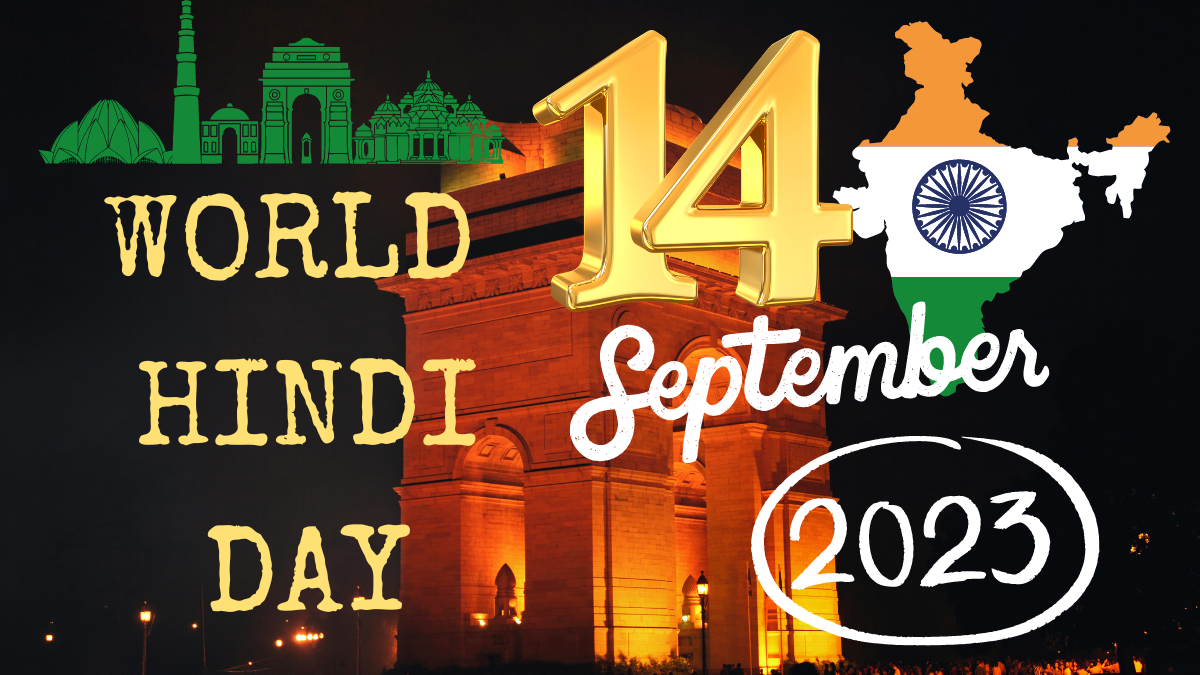Celebrating Hindi Day: A Tribute to the World’s First Air Day “14 September 2023”
In this article, we will explore the significance of Hindi Day and delve into the intriguing history of World’s First Air Day. Join us on a journey through the annals of history and discover how these two remarkable occasions have left an indelible mark on our cultural heritage.
I understand that you are referring to the fact that Hindi Day is celebrated on the same day as the world’s first air flight. However, this is a misconception. Hindi Day is celebrated on September 14, while the world’s first air flight took place on December 17, 1903.
September 14
Hindi Day is a national holiday in India that commemorates the adoption of Hindi as the official language of the Indian government. It was on September 14, 1949, that the Constituent Assembly of India voted to make Hindi the official language of the union government, with English as an associate official language for 15 years.
The world’s first air flight was made by the Wright brothers, Orville and Wilbur, in Kitty Hawk, North Carolina. On December 17, 1903, they took off in their biplane, the Wright Flyer, and flew for 12 seconds and 120 feet. This was the first time that a heavier-than-air machine had successfully flown under its own power.
So, while Hindi Day and the world’s first air flight are both significant events, they are not related to each other. Hindi Day is a celebration of the Indian language, while the world’s first air flight is a celebration of human ingenuity and progress.

Introduction: Embracing Hindi Language and Culture
Hindi, the vibrant and expressive language, is celebrated with great enthusiasm on Hindi Day, which falls on September 14th every year. This day is dedicated to honoring the linguistic diversity of India and the rich heritage of the Hindi language. Let’s embark on a journey to understand the roots and importance of Hindi Day.
The Origins of Hindi Day
Hindi Day, also known as ‘Hindi Divas,’ commemorates the adoption of Hindi as one of India’s official languages. On September 14, 1949, the Constituent Assembly of India adopted Hindi as the official language of the country. This decision was a tribute to the Hindi-speaking population and aimed to promote linguistic unity and cultural diversity.
Celebrations and Cultural Significance
Hindi Day celebrations are marked by various cultural events, including poetry recitations, storytelling sessions, and Hindi literature exhibitions. Schools and colleges organize competitions to encourage students to express themselves in Hindi. The day serves as a reminder of India’s linguistic diversity and the importance of preserving indigenous languages.

The World’s First Air Day: A Fascinating Journey into Aviation History
Now, let’s shift our focus to an event of global significance – World’s First Air Day. This extraordinary day is a celebration of human achievement in aviation and a testament to the remarkable progress we have made in conquering the skies.
The Inception of World’s First Air Day
World’s First Air Day originated as a commemoration of the Wright brothers’ historic flight in 1903. On December 17th of that year, Orville and Wilbur Wright achieved powered, controlled, and sustained flight in Kitty Hawk, North Carolina, ushering in a new era of human transportation.
A Global Celebration
Today, World’s First Air Day is celebrated worldwide, honoring the pioneers of aviation and the ongoing advancements in aerospace technology. Airshows, parades, and aviation-themed exhibitions take place in various countries, attracting aviation enthusiasts and the general public alike.
The Impact of Aviation
The aviation industry has revolutionized the way we connect with the world. It has made distant lands accessible, bringing people and cultures closer together. Additionally, aviation plays a crucial role in commerce, tourism, and emergency services, making it an integral part of modern life.
The Intersection of Hindi Day and World’s First Air Day
As we celebrate Hindi Day and World’s First Air Day, it is intriguing to note that both occasions signify the power of human innovation and the preservation of cultural heritage.
Language of Aviation
English is the primary language of aviation, used for communication between pilots and air traffic controllers worldwide. However, the celebration of Hindi Day reminds us that linguistic diversity is essential, even in the global aviation community. Efforts are being made to incorporate Hindi and other languages into aviation terminology, fostering inclusivity.
The Future of Aviation in India
India’s aviation sector is experiencing rapid growth, with an increasing number of passengers taking to the skies. As we look to the future, it is essential to ensure that the benefits of aviation reach all segments of society, regardless of language barriers. Hindi Day serves as a reminder of the importance of language accessibility in this dynamic industry.
Conclusion
In conclusion, Hindi Day and World’s First Air Day are unique celebrations that highlight the essence of human achievement and cultural diversity. While Hindi Day pays tribute to India’s linguistic heritage, World’s First Air Day celebrates the incredible advancements in aviation. Together, they remind us of the importance of embracing our roots while reaching for the skies.
FAQs (Frequently Asked Questions)
1. What is the significance of Hindi Day?
Hindi Day commemorates the adoption of Hindi as one of India’s official languages, promoting linguistic unity and cultural diversity.
2. When is World’s First Air Day celebrated?
World’s First Air Day is celebrated on December 17th each year, marking the anniversary of the Wright brothers’ historic flight.
3. How can aviation become more language-inclusive?
Efforts are underway to incorporate languages like Hindi into aviation terminology, making the industry more inclusive.
4. Why is the preservation of indigenous languages important?
Preserving indigenous languages like Hindi is vital as it represents the cultural diversity and heritage of a nation.
5. What role does aviation play in modern life?
Aviation plays a significant role in connecting people, fostering commerce, promoting tourism, and aiding in emergency services, making it an integral part of modern society.






